Search Results
Showing results 181 to 200 of 644
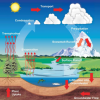
Weather Stations: Phase Change
Source Institutions
In this activity, learners observe the water cycle in action! Water vapor in a tumbler condenses on chilled aluminum foil — producing the liquid form of water familiar to us as rain and dew.
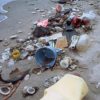
Trash Traits
Source Institutions
In this activity on page 24, learners perform experiments to examine whether or not trash can float, blow around, or wash away.

Toasty Wind
Source Institutions
In this quick activity, learners use a toaster to investigate the source for the Earth's wind. Learners hold a pinwheel above a toaster to discover that rising heat causes wind.
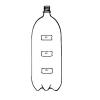
Under Pressure
Source Institutions
In this experiment, learners examine how pressure affects water flow. In small groups, learners work with water and a soda bottle, and then relate their findings to pressure in the deep ocean.
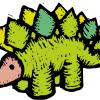
Dinosaur Dig
Source Institutions
This is an activity about dinosaurs, fossils, and the work of paleontologists. Learners use hand tools (paint brushes, scoops, and sifters) to unearth fossil specimens in tubs of birdseed.

Make a Terrarium
Source Institutions
In this activity, learners make a miniature greenhouse or "terrarium" to explore the greenhouse effect.
Crater Maker
In this activity (on pages 6-11), learners work as a team to investigate how impact craters on Earth, the Moon or other planets take shape and what patterns they make.
Effects of Solar Radiation on Land and Sea
Source Institutions
In this activity, learners explore the different heating properties of soil and water.

Disappearing Statues
Source Institutions
In this activity (on page 8), learners model how marble statues and buildings are affected by acid rain.
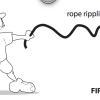
Wave on Wave
Source Institutions
In this activity, learners use raisins and seltzer water to understand why waves don’t move objects forward. Learners conduct two simple experiments to understand the circular movement of waves.
Float or Sink?
Source Institutions
In this water activity, learners test which objects float and which sink. Learners discover that objects behave differently in water.
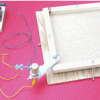
Shake Table
Source Institutions
This activity guide includes instructions on how to build a "Shake Table" by mounting an eccentric mass (off center) on the shaft of a small dc motor.

The Shadow Knows II
Source Institutions
In this activity, learners will measure the length of a shadow and use the distance from the equator to calculate the circumference of the earth.

Using Solar Energy
Source Institutions
In this activity, learners discover how solar energy can be used to heat water.

A Degrading Experience
Source Institutions
In this activity on page 27, learners perform an experiment to learn about how different types of marine debris degrade and how weather and sunlight affect the rate of degradation.

Mapping Greenhouse Gas Emissions Where You Live
Source Institutions
In this lesson plan, learners examine some of the of greenhouse gas emissions sources in their community.

Weather Stations: Storms
Source Institutions
In this activity, learners test how cornstarch and glitter in water move when disturbed. Learners compare their observations with videos of Jupiter's and Earth's storm movements.

Kid Moon: Splat!
Source Institutions
In this activity, learners model ancient lunar impacts using water balloons.
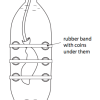
Submersibles and Marshmallows
Source Institutions
In this activity, learners discover the difficulty of ocean exploration by human beings as they investigate water pressure.
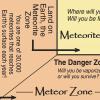
Space Rocks!: A Meteorite Game
Source Institutions
In this board game, learners explore the origins of meteors, meteoroids, and meteorites as well as the their characteristics and importance. They also discover some misconceptions about meteors.
